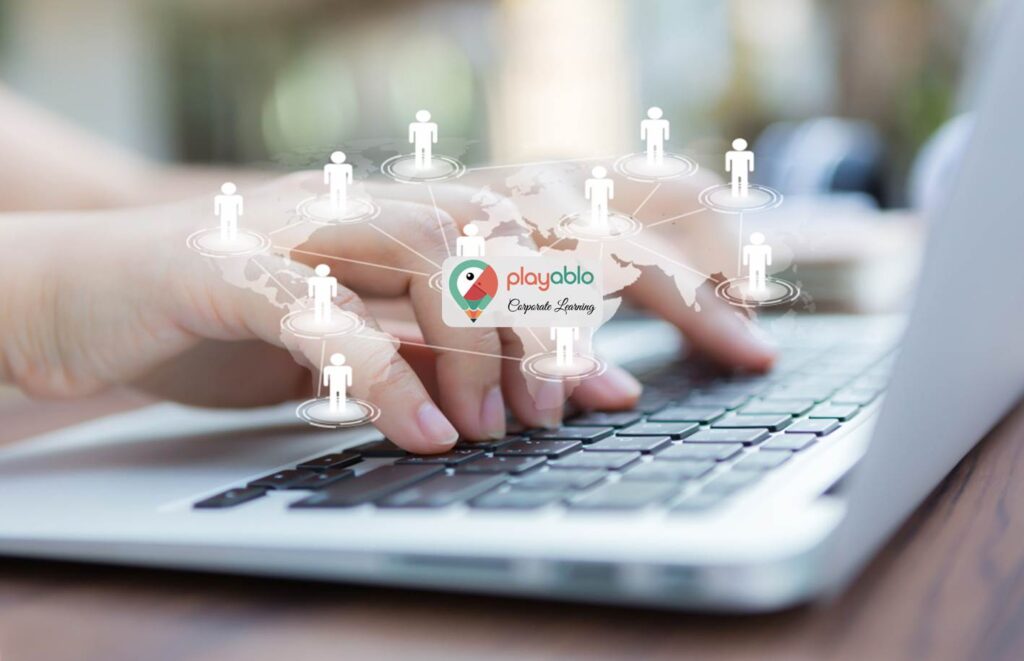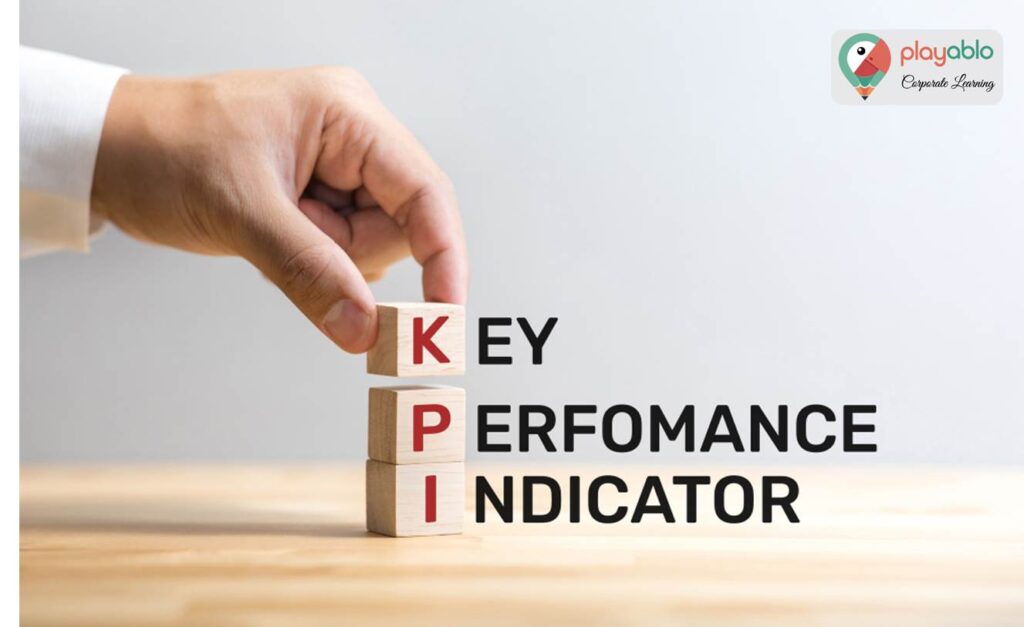To be a good salesperson, you must possess a specific set of sales skills. It’s critical to keep your abilities relevant and up-to-date as your sales process evolves. Additionally, it has the potential to improve your sales.
According to a case study conducted by Rain Group, sales teams that receive sales training close 15.2 percent more deals and have a 12.2 percent increase in profit margin. That is why salespeople need to invest in their professional development. Consider learning and improving the following skills to help you advance in your sales profession.
Table of Contents
A Round-up of the Critical Sales Skills

1. Communication that Works
The ability to communicate clearly and effectively across multiple mediums is a must for salespeople. Because the selling process is a communication-driven task. To perform well in their work, sales professionals must constantly develop their written and vocal communication abilities. This skill includes producing intriguing sales emails, nailing presentations, and keeping conversations flowing with buyers of various communication styles.
2. Expertise in Products
Why should your potential customers purchase your product? It’s tough to express these characteristics to your buyers if you don’t know what value your product provides or the essential features. Furthermore, offering the wrong goods to your customer is a no-no if you want pleased repeat customers.
To meet sales targets and sell to consumers who are a good fit and more likely to be satisfied with their purchase, salespeople should know the ins and outs of the products they are selling. After all, the selling process is a knowledge-driven task.
Overall, having extensive product knowledge allows you to respond to any inquiry, design innovative solutions to customer problems, and provide counsel that leads to opportunities. As customers become more adept at conducting independent research, product expertise will aid you in effectively communicating your unique selling offer.
3. Service to Customers
Top salespeople can engage and create rapport with the clients and prospects they want to work with. For sales reps, this may involve spending the time to learn about your customers and how your service can help them solve their problems and ask important discovery questions during your initial contacts to build a meaningful relationship.
4. Problem-solving Skills

As a salesperson, your ultimate goal should be to solve for the consumer rather than merely close the sale. That is why salespeople should be skilled problem solvers since the entire selling process is a task packed with client issues. Salespeople should be able to address difficulties immediately in front of them and anticipate future problems.
5. Business Savviness
How well-versed in business are you now? If you are still a novice, do not worry. Instead, establish a plan to improve it. Salespeople become winners when they have information and experience that informs their strategic approach and grasp of the business they’re in. Representatives with sound business acumen may make strategic decisions that benefit their company today and in the future. Do note that your selling process is a strategy-driven task
6. Sales Demonstrations
Walking a potential customer through a product demonstration is an integral part of the sales process that they should handle carefully. Your goal should be to walk your prospects through an easy-to-understand demonstration that introduces them to your product and sets the tone for the rest of the conversation.
7. Prospecting
Prospecting can be a tedious exercise. However, if you focus on qualified leads who are a good fit for your product, all of that effort won’t be in vain. Prospecting success — since the selling process is a lead-led task — involves thorough research, good communication, and discernment.
8. Collaboration
While it’s easy for salespeople to focus entirely on meeting their targets, the answer to ‘How to build sales skills” is truly a team effort. As such, collaboration is essential for a smooth sales process. Whether a salesperson needs to collaborate with their marketing team or a prospect, they must be amiable and capable of working effectively with internal and external stakeholders.
9. Building Relationships

All sales agents need to create connections, but it’s more vital for selling higher-priced or B2B products. The more valuable a product is, the more purchasers want to build trust with the people selling it to them. A sales rep is best positioned to manage the sales process to establish genuine relationships with their buyers and decision-makers.
10. Following Up
You need the tenacity to succeed in sales, which is especially true for following up with potential buyers. You’re harming your chances of success by failing to follow up with prospects. Make sure to hone your follow-up sales skills to boost your sales since the selling process is a task that demands constant reminders.
11. Closure
The close is no exception to the importance of each stage of the sales process. Effective salespeople should continually develop and perfect their closing sales skills to secure the deal.
12. Flexibility
Sales reps must adapt to various scenarios when working in a high-impact, people-focused sector like sales. Flexibility is among those sales skills that are a critical trait for goal-crushing reps, whether anticipating objections or inquiries from potential customers or being willing to swiftly adopt a new plan or technique when you’re doing isn’t working.
13. Active Listening
Active listening abilities are sales skills required for many strategies listed above, including communication, relationship-building, and collaboration.
Listening and understanding your prospects can make or break your ability to close the deal. Listening not only clarifies what your prospect is really seeking but also builds crucial trust with your customers. When your prospect feels heard and listened to, a sense of connection develops, which can help keep the sales process moving forward.
14. Emotional Intelligence
If you want to build a long-term and profitable relationship with prospects, emotional intelligence is a vital talent to have in your sales skills. Even though technology and automation have made salespeople less reliant on their interpersonal abilities, having a high emotional quotient will set them apart from their competitors.
15. Data Analysis
The modern salesperson has access to an almost infinite quantity of data about their prospects, which they utilize to determine who they should target. Obtaining those insights, of course, necessitates accurate, detailed data entry and periodic examination. Don’t rely on your manager or sales enablement to generate reports for you; instead, log into your CRM, apply the proper criteria, and search for patterns.
16. Technological Know-how
Every year, sales enablement appears to release a new tool for the sales skills in your workforce. And technology has the potential to enhance productivity significantly. Reps must be able to tell the difference between fun and ultimately distracting new tools and resources that genuinely help their bottom line.
For instance, videos will continue to play a role in the buyer’s experience as remote employment and selling become more common. It’s a no-brainer to improve your video talents. Practice your tone, tempo, and delivery. Experiment with several subjects to see which ones are the most effective. You will be far ahead of your competitors if you master the video-making process.
Ad: PlayAblo’s Enterprise-Grade Micro-Learning platform is built for the corporate learner. Micro-learning, along with assessments and gamification features, ensures learning outcome measurement along with sustained engagement.
Find out more and request a custom demo!
How to Build Sales Skills?

1. Participate in Sales Training
Sales skills training and opportunities for professional development can help you maintain your abilities up to date. In the game of sales, being a perpetual learner provides you with an advantage. You can take certification sales skills classes from LMS solutions like PlayAblo in addition to paying for in-person or online sales training.
Sales skills presentations, sales methodology, social selling, and sales coaching are covered in such courses or certifications. Consider the length of the program, the e learning tools used, the focus, the location, and the cost when selecting a sales training program.
2. Use Roleplaying

When you’re on an exploratory call with a prospect, you want to be ready for any question, objection, or situation that may arise. It’s also crucial to develop conversational flow and ask genuine inquiries rather than interrogative ones.
You and your team can roleplay on your own once a month, or you can look for a sales training session that includes roleplay.
Your team might do roleplay exercises to deal with extreme situations, get comfortable breaking up with prospects, question prospects on why they’re stuck, and overcome typical objections.
3. Make Public Speaking a Habit
Fear of public speaking affects a large percentage of the population. This fear may manifest in even the most extroverted salesperson. Practice, as with most things, makes perfect. The more you practice anything, the more comfortable you will become with it, and you will be less scared.
Sales reps must be strong communicators who can empathize with and sell to their prospects. You’ll need to give sales skills presentations, conduct product demos, and persuade multiple decision-makers during the sales process. To practice public speaking, professionals can attend events hosted by organizations, which provide opportunities to practice and learn public speaking.
4. Look for a Mentor
Working with a mentor or getting sales skills coaching can help you significantly enhance your sales results. Work with your manager or ask if they can offer you the names of great salespeople who can mentor you at your organization.
You can seek guidance on sales methods from your mentor, have them roleplay with you, or have them observe a sales call for immediate feedback. This relationship will aid in developing numerous sales abilities while also providing you with an opportunity to receive feedback.
5. Pose Inquiries
Questioning is among those sales skills that successful individuals possess. Of course, the same is true for effective salespeople. When a sales call doesn’t go as planned, or you’re stumped on how to reply to a query or objection, seek guidance from your manager or colleagues.
It’s critical to ask questions so that you can rapidly solve difficulties if they arise again. In addition to asking questions in your function, it’s vital to post the proper queries to your prospect. Find out what their problems are and what their objectives are. Only then can you begin to think about a solution and how your product or service might help them solve their problem.
6. Commit to Lifelong Learning
If we haven’t already started it, being a lifelong student will benefit your sales abilities. Due to changes in technology and culture, the sales sector is constantly evolving. It’s critical to read articles and books, listen to podcasts, and remain active and interested in your profession if you want to stay a sales specialist.
For example, if you’re a salesperson for a software company, reading articles about the software industry will help you anticipate queries from prospects and position your product or service in perspective.
7. Improve Your Prospecting Abilities
Prospecting isn’t the most glamorous component of sales, yet it is one of the most effective abilities for increasing sales. It’s also the task that salespeople devote the most time to.
As a result, salespeople should work on honing their prospecting sales skills. You can utilize various prospecting strategies to prospect leads, including making warm calls, hosting webinars, and efficiently spending time on social media.
8. Go Over Your Sales Call Again
Reviewing what went well and what went wrong in recorded sales calls can teach you a lot. If nothing is currently available, ask your sales manager if they host film reviews or create one with your peers.
Salespeople can listen to a tape of a sales rep’s call and provide comments using film reviews. Film reviews provide you with an opportunity to hone your sales talents and raise your revenue. Listen more and speak less when taking part in a film review. You could get comments on how personalized your sales call was, how well you addressed buyer pain points, your general demeanor and sincerity, how well you established the agenda, or how well you knew the product.
9. Pay Attention to What Others Say

In the same line, if you’re doing film reviews, pay attention to what your colleagues and superiors have to say. It can be challenging to receive negative feedback about your performance, but you must improve your sales talents.
Pay attention to feedback on your questions, the flow of the talk, and your rapport. These are crucial sales abilities for sales professionals to develop to be successful.
10. Maintain Contact With Customers
It would help if you established rapport with your prospects to make a successful sale. However, doing it in a few minutes over the phone with a stranger is difficult. Consider how you connect with your prospects to improve your sales skills. Have you done your homework, come up with some intriguing questions, and practiced making exploratory phone calls?
Authenticity is crucial when it comes to creating relationships. One of the most effective methods to stay connected with your consumers and increase sales is authentic, constructive dialogue.
11. Prepare to Deal With Objections
Objections and queries about your product or service will arise throughout your sales calls. That’s why it’s critical to be as prepared as possible for complaints and have canned responses on hand.
Learn about your buyer profile and spend time understanding their pain points to prepare for frequent objections. “Do they need our aid?” and “Can we help them?” are good questions to ask.
You may increase your sales skills and performance by paying close attention to your prospects’ pain points.
12. Experiment With Different Closing Strategies
Your sales process is improving all the time. Experiment with different closing tactics to improve your sales skills. For instance:
- Closes Now or Never: This is when a salesperson makes an offer that includes a specific incentive that entices customers to buy right away. To get the prospect to sign, salespeople use this closing technique to repeat the list of items the customer might buy (emphasizing the value and benefits).
- Sharp Angle Closes: Because they know they have the upper hand — and they also know you expect it — prospects frequently ask for price reductions or add-ons.
- Close the Question: Reps must ask probing inquiries to prospects.
- Assumptive Closes: This closing method makes use of the positive thinking capability. If you believe you’ll complete this business from the first email outreach, it can hugely impact the rest of the sales process.
- If you have children, you’ve probably seen that taking a toy away from them makes them want it even more. On your prospects, use a similar psychological technique.
- Soft Closes: A soft close is a technique for showing a prospect the benefits of your product and then asking a low-impact question to see if they’re interested in learning more.
You can iterate and enhance your sales talents by experimenting with different sales approaches.
13. Improve Your Sales Cycle By Iterating
In most cases, your sales cycle is a tactical method of selling your product or service. This approach isn’t likely to change soon. It is, therefore, critical to iterate at each point of the sales cycle.
If your sales cycle goes something like this: “prospecting, connecting, researching, presenting, and closing,” you should always be looking for ways to increase your prospecting abilities. It would be best to learn how to conduct a compelling exploratory call, practice public speaking, and experiment with various closing tactics.
You’ll develop your sales skills and reach better figures by iterating on each stage of your sales cycle.
14. Keep Tabs on Your Progress

Tracking your development is the most effective technique to improve your sales abilities. Set sales objectives and follow your success every week or month to keep track of your progress. You may even run an A/B test to see what works best.
For instance, start with one of the items on this list. Let’s pretend you’re going to experiment with alternative closing methods. Record your current close rate and use that method to track your close rate. Have you noticed an increase in the number of people you’re able to close with? A test like this can help you determine what’s working and what’s not in your sales process.
15. Improve Your Listening Abilities
Active listening is a skill that a sales professional must master to be a successful salesperson. When a prospect is talking, you’re probably thinking about your response and formulating responses to queries in your thoughts.
Instead, pay close attention to what your prospect has to say. Make sure you understand what the prospect told by repeating what they’ve said. This approach will help you figure out your prospect’s pain point and whether you can help them address it.
Consider professional development possibilities to boost your sales and improve your performance. Always be on the lookout for new techniques to improve your sales talents and increase your revenue.
Conclusion
You’ll flourish in your current function and efficiently advance your sales career if you regularly work on your sales abilities. It’s critical to keep learning not only as you encounter new obstacles and cultivate new sorts of purchasers but also as you try to upsell existing customers. Use the skills listed above to develop a selling strategy to help you stand out among your colleagues.
Ad: PlayAblo’s Enterprise-Grade Micro-Learning platform is built for the corporate learner. Micro-learning, along with assessments and gamification features, ensures learning outcome measurement along with sustained engagement.
Find out more and request a custom demo!







Comments are closed, but trackbacks and pingbacks are open.